KooKoo
Description
Kookoo exists for the sole purpose of making it easier for you to develop telephony systems. In the current scenario, web based systems and web based programming languages have gained traction for information dissemination. Telephony systems have lagged behind because of exorbitant setup costs and other such problems. Kookoo plans to address this problem by making telephony functions accessible through common web programming languages. Let us look at a common scenario where Kookoo can be used. Let us say that you own a local search company “SearchUs”. You have collected information about all local businesses and stored the information in a database. You have created a wonderful website using J2EE technologies so that customers can access that information. But you find that most of your customers actually prefer a phone than a website and hence your contact number is always overloaded. You would now prefer to have an IVR system so that customers can search for the information themselves without overloading your resources. But, building a IVR system is very costly and involves learning new technologies.Now you are caught in a dilemma. This is exactly the kind of problem Kookoo has been designed to solve. Just register for a Kookoo account. Reuse your existing web infrastructure and use Kookoo calls to access telephony functions and provide telephony access to your application.
What we deliver
We provide the KooKoo platform, a web to telephony/mobile platform available to all businesses across India. KooKoo has been used to build telephony applications which have handled 4 million calls in a day from all corners of the country. KooKoo empowers e-commerce sites by adding a Voice channel to their business
Whom we deliver
Zipdial, Pratham Motors, Aditya Birla Money, Basix, Logica, Rocketalk, mChek etc
Why is the project unique?
We are the first to launch. a telephony interface for web programming languages in India.
Roadmap
Internet has changed the way people do business. Internet and associated technologies have made it easy for people to even start new businesses. Right now, it is very easy for anyone to start a business. All it needs is an Idea. For an Internet business to startup, he can get a domain name for Rs.500($10) per year and around 50GB hosting with database for Rs.3000 ($60) and he is set(sometimes, he can get these for an even lesser amount). So with just a base capital of around Rs.1000/2000 ($50) per month any person can publish his idea to the world. This ease of setup and availability of developer resources has made entrepreneurs look towards Internet solutions to start their businesses and publish their ideas. And we have seen the outcome of that. Innovative businesses are coming up every day and changing our lifestyles. Let us say a killer idea for a business has just come to you. What is the first task you do? You check to see if the domain name for your idea is still up for grabs or not. You do not think of applying for a business phone number. Though telephones have been in existence for a far longer time than computers, they are no longer our preferred mode of communication and they are no longer the preferred channel for businesses to reach their customers. This is in spite of the fact that there are more telephone users in any country than computer users (in fact, for every one person who has an Internet connection in India, there are 10 persons who have a telephone connection).And also, computers are accessible to only literate people and has led to what many people refer to as the “Digital Divide”. Why is that so? The reasons are plenty, as I have mentioned in my previous posts, but mainly they are: 1. Closed nature of the telephony applications controlled by a few big telecom companies. 2. New technology stacks to be learnt by developers. 3. Large setup costs and costly telephony hardware. 4. Technology gap. Voice based technologies are not up to the mark, especially speech recognition. Cloud telephony platforms could change this paradigm. If only you could get telephony functions for Rs.500 per month to publish your idea over the phone. If only you need not learn any new technologies to build telephony applications. If only building a telecom application was as easy as building a web page. If only you need not know about ports, PRI cards and other telephony terminology. Then maybe we can see a spurt of innovation in telephony applications. Then maybe entrepreneurs will start to think of creating telephony startups. Then maybe we can see mashups which make the web data available to telephone users. And then maybe we can free our voice. Cloud telephony platforms have the potential to be this disruptive force which can fuel innovation. All cloud telephony platforms have the following things in common: 1. They provide a web based API using which users can call telephony applications like dial, get dtmf, record audio, play audio etc. 2. They take care of hardware setup and phone number provisioning so that you can worry only about your application. 3. Most of them have a pay for what you use policy so the initial setup costs are negligent.
Contact
CSN Murthy
Ozonetel Systems
7-1-24/C, Unit No1, 3rd Floor, Dhansi Surabhi Greenlands, Begumpet
Hyderabad, Andhra Pradesh, India
500016
URL/Website – http://ozonetel.com




